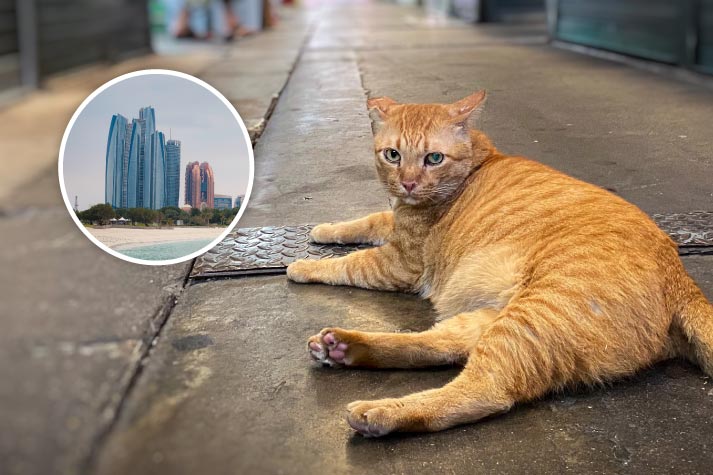


24 Feb
A large percentage of the population of Abu Dhabi shop for their pets instead of considering adoption as an option. The Animal Welfare Abu Dhabi (AWAD) group is trying to change that; launched in the capital on 21 February, this new group aims to dispel misconceptions related to pet adoption and offer support to families.
“Some people think a rescue is not as good as a pet bought from a breeder and even consider rescued animals as ‘secondhand’ because they are from an adoption home,” said Sheikh Dr Majid bin Sultan Al Qasimi, Vice-President of the Board of Directors of AWAD. “Every animal and every pet has a character, whether you get them from a shelter or from a breeder. You have to find the right character for your family.”
Sheikh Dr Majid bin Sultan Al Qasimi was speaking at a panel discussion at Gracia Farm in Abu Dhabi during the launch of AWAD. Dr Rachel J. Shaw, manager of the AWAD, states the group’s main objective was to engage the community and ensure animals are protected in the emirate. “We want to empower the community to help us be part of the solution to problems we have identified,” she said.
The AWAD has planned a community cat day care campaign, which will help balance the tray cat population residing within gated communities. It aims to trap cats at feeding stations, neuter them, vaccinate them, and microchip them, before returning them. This will help control the stray cat population effectively.
According to Dr Martin Wyness, CEO of The British Veterinary Centre, residents putting out cat feeding stations is more dangerous than helpful. “The number one issue in my mind is feeding animals without a Trap-Neuter-Return (TNR) programme to control the population,” he said. “This simply magnifies the problem because breeding becomes uncontrolled.”
Dr Rachel also said that it was important for cat lovers to remember not to “feed to breed” but to “feed as a means for TNR” so that the animal population can be kept in check.
According to Dr Martin, “impulse buys” of animals without thinking in the long run is a common issue. Dr Neha Vora, a professor at the American University of Sharjah (AUS), said that people don’t plan enough in the case of pets.
“We have a very transient population here and a lot of people will get pets because they help you live a happier life,” she said. “However, they don't plan for what's going to happen when they have to leave. So abandonments are really high. I think there should be some kind of safety net that helps people to take their pets with them when they have to leave the country. I think that would really reduce the number of abandonments.”
Dr Majid added that it was extremely important to conduct a thorough background check to see if a pet fits with a family before adopting it. “There should be education on what animal species as a pet suits the owner,” he said. “Also, there should be checks; are the children in the house allergic and how a household would care for a pet rather than just go for the cute factor.”

AUTHOR’S BIO
ARSH BHARDWAJ
I am passionate about language, storytelling and the human urge to connect Having paid close attention to marketing and branding as a craft for some time, I'm eager as ever to indulge my passion for prose.